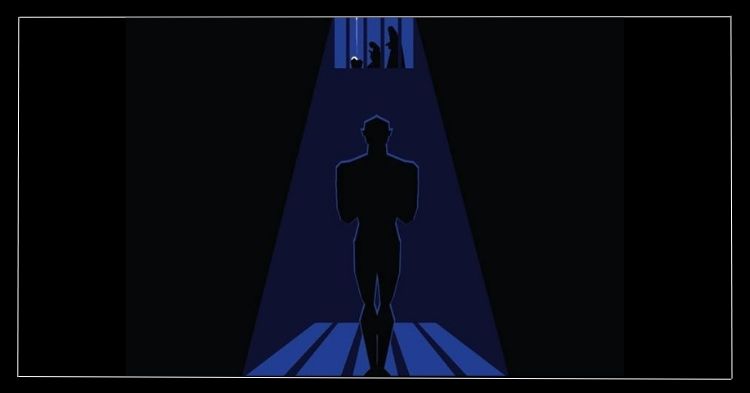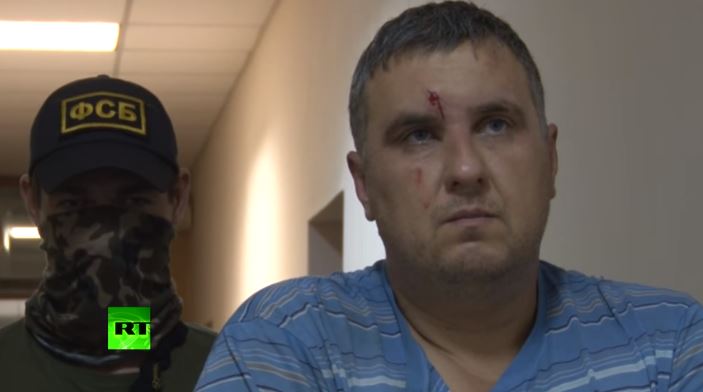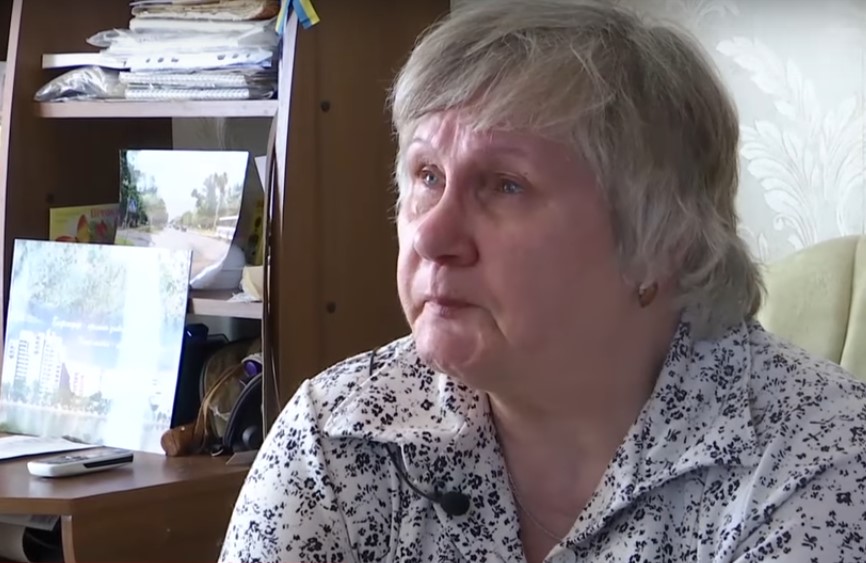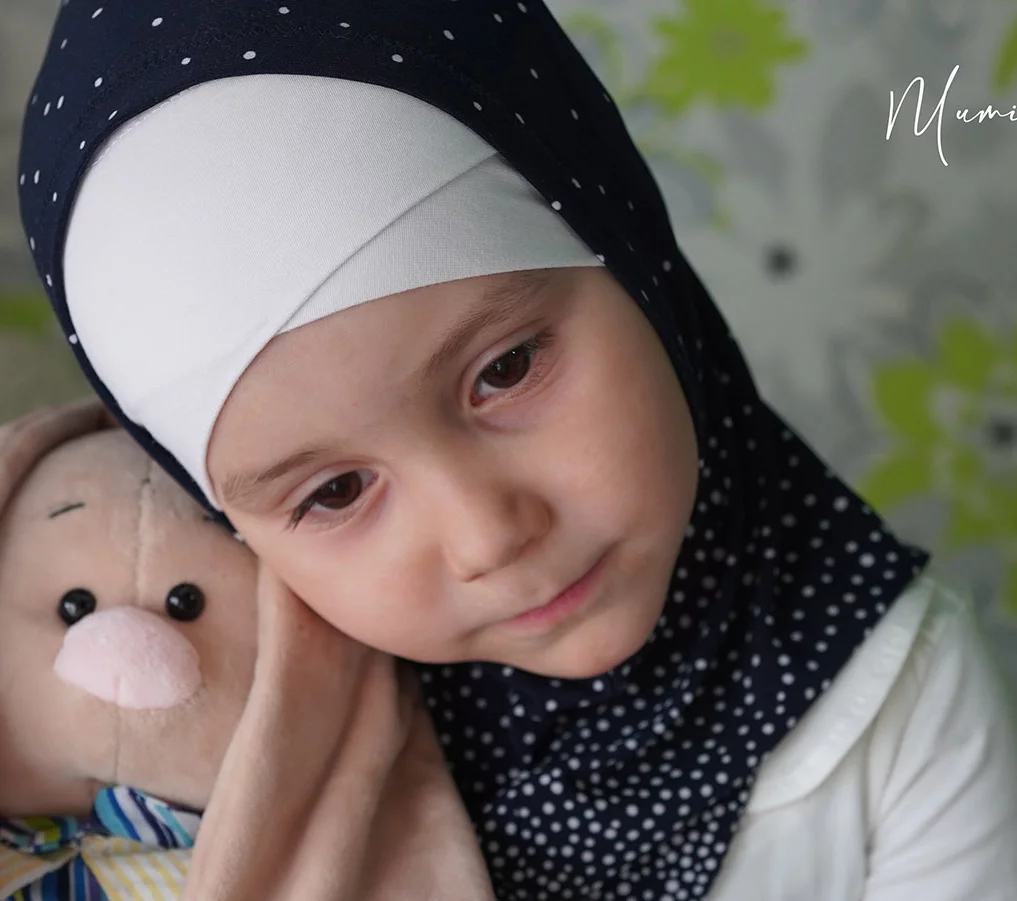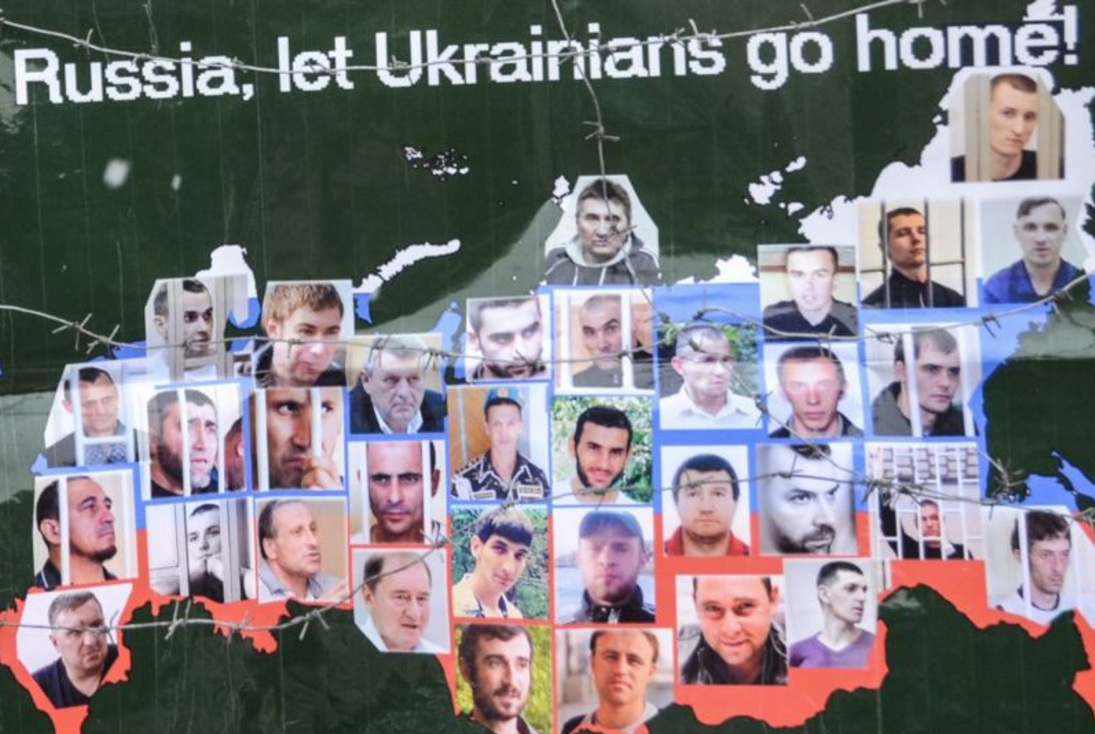12 January is the Day of the Ukrainian political prisoner, established to honor people who were imprisoned on political motives.
In 1975, Viacheslav Chornovil proposed to this day to demonstrate opposition to Soviet repressions against Ukrainian intelligentsia. In 2021, this date is especially relevant: the Kremlin launched a new wave of repressions against Ukrainians since the start of its armed aggression in 2014. To date, at least 127 Ukrainians are imprisoned by Russia on political motives.
Political persecution serves Russia’s political ends to:
- Legitimize Putin’s political power on the occupied territories of Ukraine;
- Sow fear in the population to make it loyal to Moscow’s policy;
- Gag dissidents who question Russia’s historical narratives justifying colonialism, since
“Who controls the past,” ran the Party slogan, “controls the future: who controls the present controls the past.” (G. Orwell, 1984)
What happened on 12 January 1972?
On 12 January 1972, Soviet KGB arrested 14 “Shistdesiatnyky,” representatives of a movement of Ukrainian democratic and national revival which began in the 1960s.
Kyiv saw the arrests of poets Vasyl Stus and Ivan Kovalenko, literary critic Ivan Svitlychnyi, philosopher Yevhen Sverstiuk, mathematician and publicist Leonid Pliushch, “experienced” prisoner of Stalin’s camps Danylo Shumuk, doctor Mykola Plakhotniuk, economist Zinoviy Antoniuk, restorer Oles Serhiienko. In Lviv, the KGB officers detained the publisher Viacheslav Chornovil, journalist Mykhailo Osadchyi,
religious figure Ivan Hel, artist Stefaniia Shabatura and poet Iryna Stasiv-Kalynets.

They were accused of “Ukrainian bourgeois nationalism” and spreading Samizdat .
During 1972, Soviet authorities imprisoned or placed in psychiatric hospitals as many as 89 Ukrainian intellectuals.
12 January marked the beginning of mass repressions against the Ukrainian intellectual elite.
Brief history of Soviet political persecution of Ukrainians
Russia’s tradition of persecuting Ukrainians on political grounds traces back to the Russian Empire, with its peak during the Soviet era.
Practically since the appearance of the USSR on the world’s political map in 1922, the government deployed power politics to stifle opposition. In the late 1920s, some of the most repressive measures fall upon the Union for Ukraine’s Liberation (SVU), the fictional “counter-revolutionary organization” that presumably emerged in 1926 and united anti-Soviet intellectuals.
According to the USSR’s special police, the organization was aimed at:
- Overthrowing the Soviet government in Ukraine through an armed uprising with the help of foreign states;
- Separating the Ukrainian Soviet Socialist Republic from the USSR;
- Restoring capitalism.
In 1930, 45 intellectuals were charged with affiliation with the SVU in a fabricated process. Most of them were sentenced to up to ten years’ imprisonment.
From Stus to Sentsov: Ukraine’s Soviet-era political prisoners of the Kremlin
According to some researchers, a total of 30,000 people may have been arrested in relation to the SVU.
Relatively liberal tendencies during the 1920s – the development of education and the comparative leniency of the Soviet regime – helped to foster a wide range of art movements and schools. But this flourishing, later named the Executed Renaissance, came to a tragic end: the era’s prominent figures were often imprisoned and even executed on charges of terrorist activity.
The poet-futurist Mykhailo Yalovyi and writer-satirist Ostap Vyshnya, for instance, were accused in 1933 of spying and attempting to assassinate the Soviet official Pavel Postyshev.
In 1937, poet Mykhayl Semenko was executed as an alleged member of a terrorist organization and charged with attempting to assassinate Stanislav Kosior, Ukraine’s communist party leader.
In the mid-50s, the Khrushchev Thaw gave a push to the revival of Ukrainian culture and the emergence of a political elite among “Shistdesiatnyky.”
Despite the liberalization of the mid-60s, the stifling of “thought criminals” continued.
The operation to arrest Ukrainian dissidents in 1972
In the early 70s, Chief of Soviet Ukraine’s KGB Vitaliy Nititchenko expressed concern to the senior political leadership that a growing number of activists were producing and spreading “anti-Soviet” Samizdat.
To neutralize active Ukrainian “national elements,” who allegedly planned to create a mass opposition movement in the USSR, the KGB carried out operation “Block”
on 4 January 1972. They detained Yaroslav Dobosh, a Belgian citizen, student of Catholic University of Leuven, and member of Ukrainian Youth Union, on the train “Moscow-Prague.”
The KGB officers found a photograph of political prisoner and historian Valentyn Moroz, poet and dissident Vasyl Stus, and of poet Ihor Kalynets, as well as copies of “Dictionary of rhymes of a Ukrainian language” by political prisoner Sviatoslav Karavanskyi, and Samizdat.

The detention of Dobosh marked the beginning of mass arrests of Ukrainian intelligentsia on 12-14 January.
Ukrainian political prisoners of the Kremlin: how Russia persecutes Ukrainians today
Since the outbreak of armed conflict in Donbas and Crimea, Russia has taken measures to punish Ukrainian nationals for their nationality, religion, political views, and peaceful resistance to occupation. Oftentimes, this is done by the means of criminal prosecution.
Innocent people who committed no crime end up on the defendant’s bench. The accusations against them are often “espionage,” “terrorism,” or “sabotage.” Often, these charges entail closed court hearings to disable public monitoring of violations of defendants’ procedural rights. Moreover, they result in large prison sentences of up to 20 years and demonize the reputation of dissidents.
This is happening in the context of Russia’s hybrid war against Ukraine. The purpose of this war, driven by Russian imperialism, is to bring Ukraine back to Russia’s sphere of influence. In this war, Ukrainian hostages often play the role of living victims for the Kremlin’s propaganda machine. They persuade the Russian public that it is Russia that faces mortal danger from Ukraine, thus honing the Russians for war against Ukraine. Political persecution is also a means to stifle any dissent in the occupied territories.
Ukrainian political prisoners: Living victims of the Kremlin’s propaganda machine
One prominent example of Russia using political persecution to create the illusion of imminent danger from Ukraine is that of Yevhen Panov. Russian authorities arrested the Ukrainian while he was attempting to cross the boundary between mainland Ukraine and occupied Crimea and accused him of being part of a “saboteur group” and plotting a series of attacks on the peninsula.
The FSB released a video purporting to show Panov confessing to these accusations, which was later televised on Russian mainstream TV channels. Later, the Ukrainian described what was behind the video, where he appeared visibly distressed: torture over six days.
“They beat me with an iron pipe in the head, back, kidneys, arms, and legs; they tightened handcuffs from behind until my hands became numb; they hang me up by handcuffs: my knees were bent, the handcuffs were fastened slightly below the knees, an iron stick was inserted under the knees, and then two men took it from both sides and lifted this stick with me, which caused wild pain.”
Yevhen Panov is now free, having been exchanged in a prisoner swap with Russia. But Crimean natives, military experts Dmytro Shtyblikov, Oleksiy Bessarabov, and Volodymyr Dudka are still imprisoned. The occupation authorities did not invent anything new and accused them of preparing subversive activities at the military and life support facilities on the instructions of the Ukrainian military intelligence.
Human sacrifices for the Kremlin’s propaganda machine: meet the “Crimean saboteurs”
Political persecution is also the Kremlin’s way of fighting opposition to its imperial policies. Two prominent examples are that of Oleg Sentsov and Volodymyr Balukh. Both are natives of occupied Crimea; both did not accept the Russian occupation of 2014.

Filmmaker Oleg Sentsov was arrested together with three other Ukrainians shortly after the occupation and accused of leading a Ukrainian terrorist group. Human rights experts called the case a “show trial of opponents” and likened it to Stalinist trials of the times of the most bloody repressions of the USSR.
In an impassioned speech in court, Sentsov exclaimed that he does not recognize the illegal occupation of Crimea and rejected Russian citizenship being foisted on him, declaring that he is not a serf that can be transferred with the land.
He was sentenced to 20 years in prison. Later, behind bars, Sentsov launched
a hunger strike, demanding the Kremlin free all Ukrainian political prisoners.

Volodymyr Balukh also did not recognize the illegal occupation of his homeland. He kept flying the Ukrainian flag above his village house. At the end of 2016, Russian law enforcers “discovered” explosives in the house of Balukh’s wife. According to the allegations of the occupation police, the materials appeared in the house because Volodymyr had “often gone to [mainland] Ukraine.” The fact that no fingerprints of the defiant Ukrainian were found on the explosives did not prevent him from being sentenced to nearly 3 years and 7 months in prison.
Both Balukh and Sentsov now walk free after a prisoner swap. However, the Ukrainian journalist Vladyslav Yesypenko, who arrived in occupied Crimea as an RFE/RL freelancer to film a ceremony dedicated to a Ukrainian poet who resisted Russian imperialism back in the XIX century, is held under custody. He was arrested on the accusation of espionage; like other Ukrainian political prisoners, his “confessions” were extracted from him by means of torture, namely – electrocution with increased dosages.
But the most prominent example of Russian imperialism taking Ukrainian political hostages today is the scores of Crimean Tatars being imprisoned on sham accusations of terrorism. They make up the bulk of Ukrainian political prisoners arrested today.

Crimean Tatar defendants in one of Hizb ut-Tahrir cases, the Second Simferopol group, in court behind the glass wall, 9 June 2020. Photo: krymsos.com
Crimean Tatars are the indigenous people of Crimea who put up the primary resistance to Russian occupation in 2014. Most of them are ethnic Muslims and constitute a consolidated community capable of organized opposition to Vladimir Putin’s policies. For that, their leaders have been arrested and expelled from their native peninsula.
Currently, 80 Crimean Tatar men have been accused of terrorism based on ficticious charges of membership in the Hizb ut-Tahrir Islamist group, which Russia has outlawed as terrorist as part of its war on Muslims. Of these, nine are citizen journalists who before their arrest were communicating the reality of Russia’s repressions against Crimean Tatars to the outside world.

Yet other Crimean Tatars are accused of sabotage. One of them is Nariman Dzhelyal and his cousins Aziz and Asan Akhmetov. Dzhelyal is a high-ranking representative of the Crimean Tatars who took part in the inaugural summit of the Crimea Platform, Ukraine’s official first-of-a-kind international platform for the ultimate de-occupation of the peninsula. The three were deemed liable for the explosion in a gas pipeline in Perevalne village near Simferopol on 23 August, the very day of the inaugural summit of the Platform. According to Crimean Tatar leader Refat Chubarov, their arrest is the Kremlin’s revenge for the Crimea Platform.
Putin’s Hostages, documentary about Ukrainian political prisoners of the Kremlin, available online
They often stay incommunicado and miss communication with the world. Each and every one of us can show the prisoners, that they are not forgotten and that the world is watching the Kremlin’s regime’s crimes closely. That’s why as part of the #LetMyPeopleGo campaign, the Center for Civil Liberties together with Euromaidan Press is launching the traditional 2022 Winter letter marathon for Ukrainian political prisoners of the Kremlin. Follow this link to join the letters marathon.
This January, send a letter to a Ukrainian political prisoner of the Kremlin
Related:
- Putin’s Hostages, documentary about Ukrainian political prisoners of the Kremlin, available online
- This January, send a letter to a Ukrainian political prisoner of the Kremlin
- Carols against the USSR: the tragic 1972 Vertep and KGB’s mass arrests of Ukrainian dissidents (photos)
- How important were the Soviet dissidents: the case of Ukraine
- Words of freedom: why you should send a letter to a political prisoner of the Kremlin
- Jailing innocent Crimean Tatars to insanely huge terms: a how-to guide from Russia
- Pull off a kangaroo court in five easy steps: a how-to guide from Russia
- From Stus to Sentsov: Ukraine’s Soviet-era political prisoners of the Kremlin
- Drawing the life he is not living: prison art by Ukrainian political prisoner of the Kremlin showcased in Berlin | Photos
- VIP campaigners step up for the Kremlin’s Ukrainian hostages
- “There is no greater humiliation than reducing a person to an animal without any rights.” Kremlin hostages share their prison survival strategies

